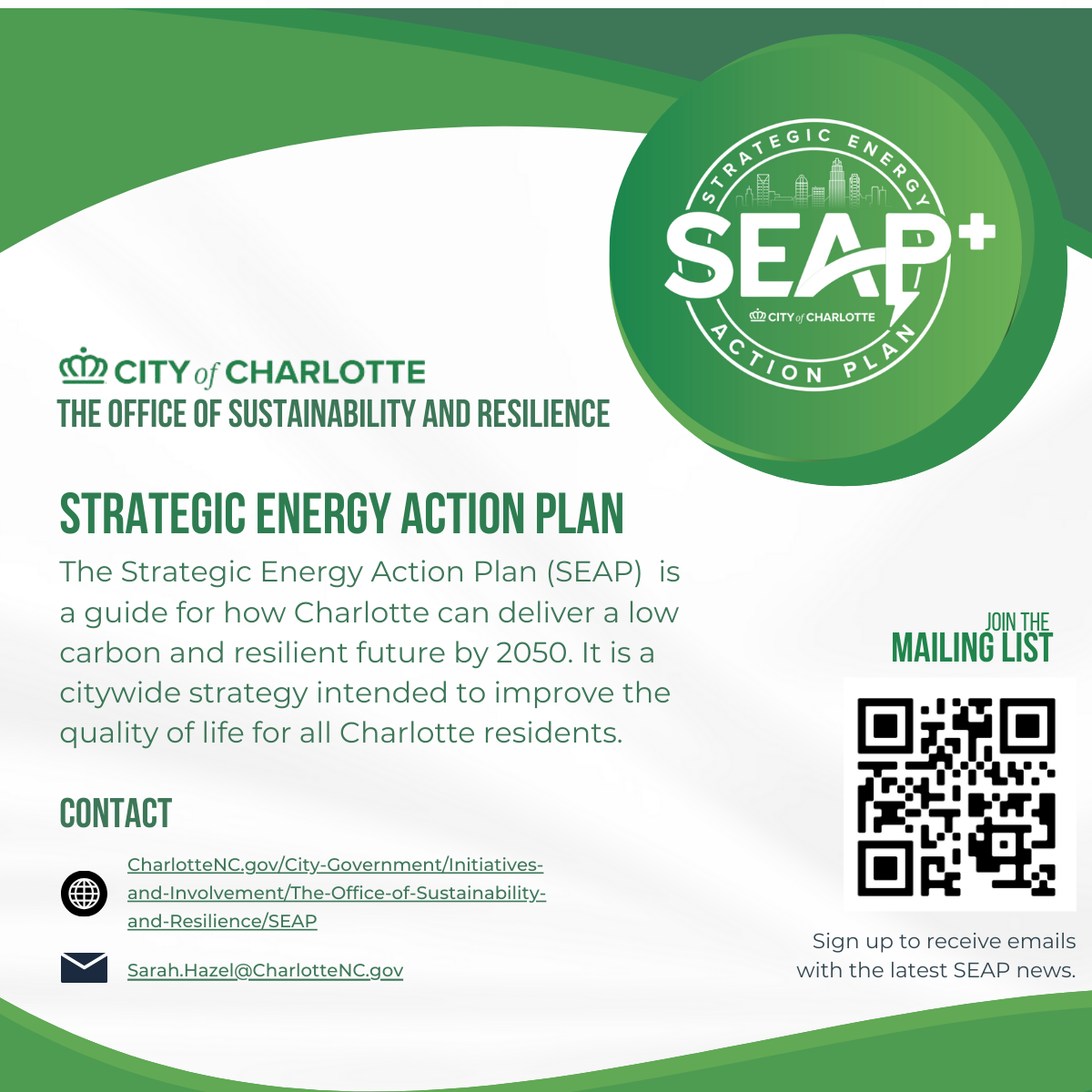Civics and Sustainability
How Civic Engagement Influences Sustainable Futures
The City of Charlotte NNO 2024
With numerous opportunities to engage, City of Charlotte, North Carolina residents can be proud of sustainability efforts championed both by diverse communities within the city, and their local government. Visit Charlotte SEAP to learn more.
How Civic Engagement Can Shape Sustainable Futures
At Civility Localized we believe in the power of strong communities. More than friendly faces and shared traditions – we see strong communities working together to build infrastructure that equitably serves generations to come. That’s where the link between civic engagement and sustainable practices come together in a powerful way.
Civic Engagement: The Fuel for Sustainable Progress
Civic engagement is more than voting – it's about actively shaping the places we call home. It’s collaborating to solve community challenges like making neighborhoods more climate resilient. It can include volunteering, attending public meetings, advocating for causes we believe in, and holding local leaders accountable. Engaged citizens with diverse backgrounds fuel sustainable progress. The takeaway here is that the tangible actions community members take today to engage in civics are concrete steps toward building more resilient futures for all.
Here’s an example: imagine a community facing rising energy costs. Engaged citizens might organize to push local governments to consider renewable energy sources, or support Participatory Budgeting proposals for solar panels in public parks. This kind of civic power is made possible by a community rooted in strong foundations of civic participation (source: National Civic League).
“We’re flipping the script by putting civic engagement first, putting people at the center of environmental work, so that, in particular, people of color and other populations most affected by environmental injustices have roles as decision-makers and proactive change agents.”
The Role of Local Governments in Climate Resilience
Local and state governments play crucial roles in steering communities toward sustainability. They often have the authority to allocate funding for green initiatives like public transportation improvements, energy-efficient building codes, and conservation projects.
Such decisions are never made in a vacuum. Engaged residents of any city, town, or county can influence how public funds are spent by their local governments. Through advocating for specific programs and holding officials accountable for their promises, all communities can ensure that sustainable practices are seen as a priority (source: Giving Compass).
Good civic engagement is rooted in meaningful exchanges
Local governments host a variety of spaces for public conversation. Whether it’s public meetings, a public input survey, or a focus group, it’s important for community members from diverse perspectives to share their ideas and concerns when public projects are in the community engagement phase. This exchange of information is crucial for understanding diverse viewpoints and building consensus. This feedback is essential for refining policies, programs, and initiatives. By listening to the voices of engaged residents, policymakers get closer to responsive solutions to the needs and priorities of the communities they serve.
Charlotte North Carolina’s Strategic Energy Action Plan
One example of a city government and it’s residents taking a proactive approach to sustainability can be seen here in Charlotte, North Carolina.
In 2018, the Charlotte City Council unanimously adopted the Strategic Energy Action Plan (SEAP), committing to transforming Charlotte into a low-carbon city by 2050.
This plan aims to reduce greenhouse gas emissions to below 2 tonnes of CO2 equivalent per person annually. By prioritizing sustainable initiatives and involving the community in the process, Charlotte demonstrates the positive impact that local governments can have in shaping a greener future.
City of Charlotte’s Office of Sustainability and Resilience
Is collecting resident responses to a Survey for their Strategic Energy Action Plan through November 30, 2024
Civility Localized is proud to be a partner in bringing updates on the SEAP to local communities and sharing opportunities for residents to get involved. Area residents can take the SEAP Awareness Survey here: www.PublicInput.com/CharlotteSEAP until November 30, 2024. Let your voice be heard! Take the survey today.
Bridging the Gap: Where Civility Localized Comes In
At Civility Localized, we believe every community deserves to grow with dignity.
That’s why equitable engagement strategies are so important to fostering effective civic engagement. When citizens have opportunities to express their views and work together constructively, it paves the way for better decision-making.
Through our consulting services we offer local governments opportunities to reach historically divested communities, to engage different, and to increase inclusive engagement capacity.
Through our Civic Impact Academy, we cultivate a community of civic engagement where lived experiences can be shared. We provide resources and training to help communities connect and address challenges together. Civic Impact Academy exists to encourage civic engagement and promote collaborative problem-solving between local governments and their residents.
We hope to see even more communities advocate effectively for sustainable initiatives and identify leaders ready to build sustainable futures.
“The city is growing and diversifying very quickly. I hope that [future generations] will live in a city that is equitable for everyone, and look back and appreciate the work happening now to ensure a better future.”
Food For Thought
How does your government office engage in equitable community outreach?
Do sustainability projects have support in your local precinct?
Thanks for reading. Together, we can build a tomorrow that is not only prosperous but also environmentally responsible. Let's harness the power of civic engagement and create sustainable communities that thrive for generations to come.
To read more on Participatory Budgeting in Mecklenburg County, North Carolina, check out our previous blogs and Case Study:





